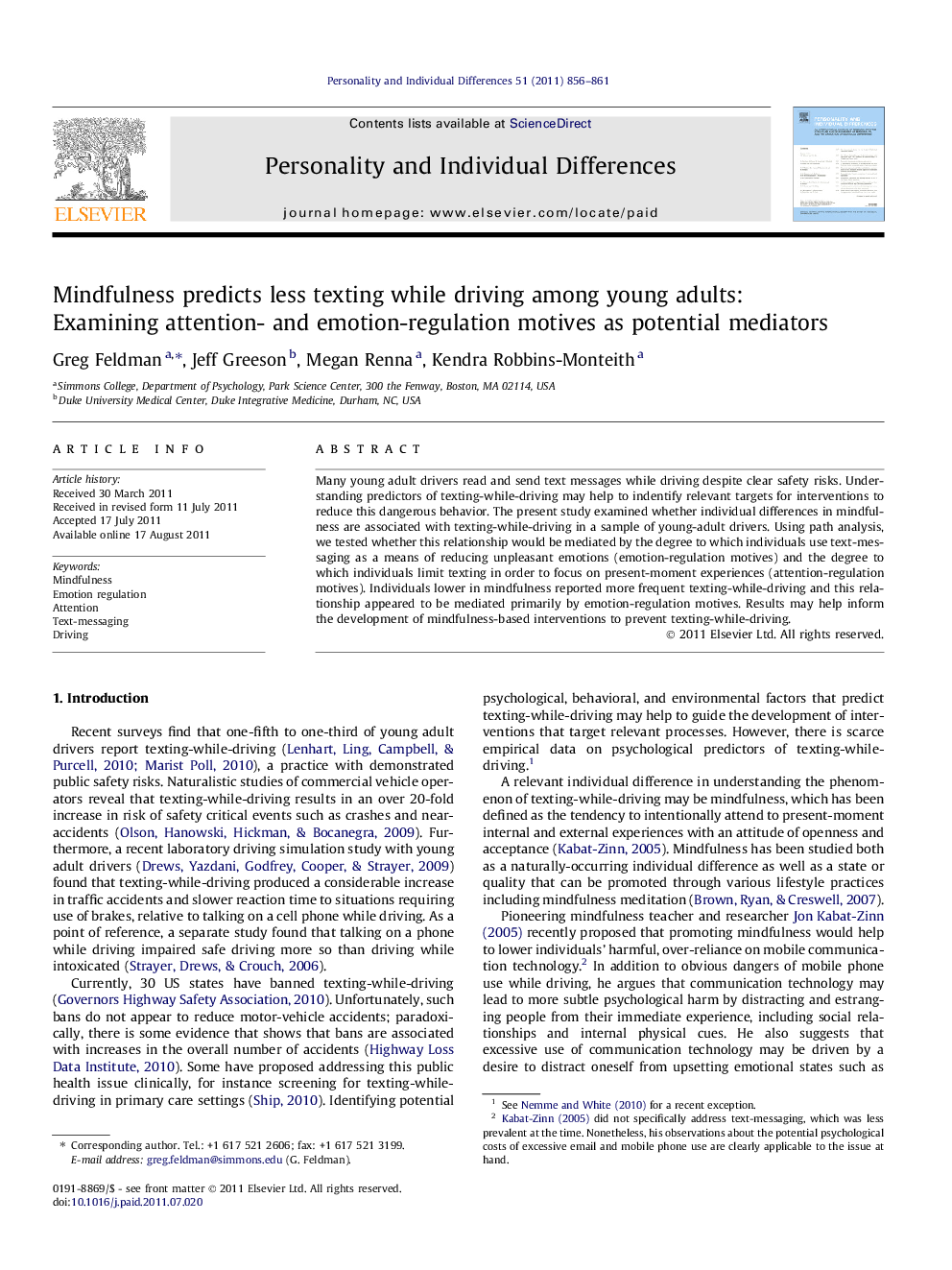| Article ID | Journal | Published Year | Pages | File Type |
|---|---|---|---|---|
| 891427 | Personality and Individual Differences | 2011 | 6 Pages |
Many young adult drivers read and send text messages while driving despite clear safety risks. Understanding predictors of texting-while-driving may help to indentify relevant targets for interventions to reduce this dangerous behavior. The present study examined whether individual differences in mindfulness are associated with texting-while-driving in a sample of young-adult drivers. Using path analysis, we tested whether this relationship would be mediated by the degree to which individuals use text-messaging as a means of reducing unpleasant emotions (emotion-regulation motives) and the degree to which individuals limit texting in order to focus on present-moment experiences (attention-regulation motives). Individuals lower in mindfulness reported more frequent texting-while-driving and this relationship appeared to be mediated primarily by emotion-regulation motives. Results may help inform the development of mindfulness-based interventions to prevent texting-while-driving.
► Many young adults engage in texting-while-driving despite clear safety risks. ► Individuals lower in mindfulness reported more frequent texting-while-driving. ► Text-messaging to reduce unpleasant emotions primarily mediated this relationship. ► This study is the first to show a link between mindfulness and texting-while-driving. ► Mindfulness-based interventions could be developed to prevent texting-while-driving.
